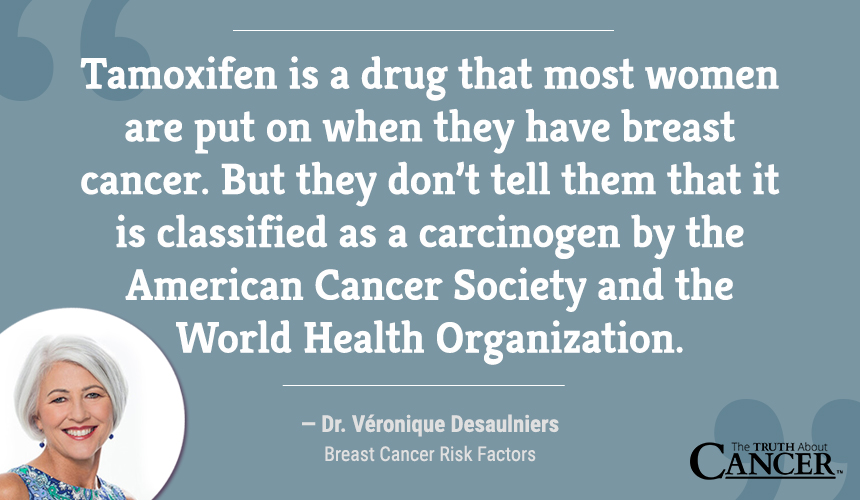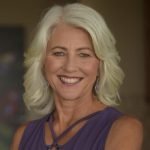Video Transcript: Breast Cancer Risk Factors
Ty Bollinger: You mentioned surgery. What is your take on preventative surgery? We see stories of people like Angelina Jolie that has both of her breasts removed in case she might sometime down the road get cancer.
Dr. Desaulniers: Well, that refers to the BRCA gene scare. It really was quite a Hollywood hype last year. And I’m not judging her; she saw her mother die a very horrible death. But there was a lot of misinformation.
The BRCA genes are actually cancer-protective genes. They help to repair DNA damage. And so the BRCA gene, if it mutates, then it can cause a problem, possibly. But what causes it to mutate? Look at the foods, look at the radiation. So BRCA genes are tumor-suppressive protective genes.
Ty Bolligner: So do you inherit breast cancer genes? Is it inherited? Is it genetic?
Dr. Desaulniers: That’s the big thing. Well, my mother had breast cancer so I’m probably going to have breast cancer. But we now know through the study of epigenetics, which is the science of looking at gene expression, and nutrigenomics, which is the study of food, we know that we can change our gene expression by what we eat, how we sleep or don’t sleep, how we manage or don’t manage our stress.
The foods that we eat. So something as simple as curcumin can help to really turn on the cancer protective genes and change those gene expressions.
Ty Bollinger: I interviewed Dr. Sunil Pai again and he mentioned that, specifically, that curcumin has an epigenetic effect. It can switch on or switch off the things that need to be switched on or off to keep you healthy.
Dr. Desaulniers: Yes. And that’s just one of the foods. Things like broccoli sprouts, and ginger, and boswellia. All those things are anti-inflammatory and turn on those protective genes.
Ty Bollinger: What about treating breast cancer or any kind of cancer, for that matter, with toxic drugs?
Dr. Desaulniers: Well, let’s talk about aromatase inhibitors or drugs like Tamoxifen. Tamoxifen is a drug that most women are put on when they have breast cancer. But they don’t tell them that it is classified as a carcinogen by the American Cancer Society and the World Health Organization.
So does it make sense to give a woman a carcinogenic drug that will cause cancers in other parts of her body, to prevent cancer? Again, it goes back to what can we do to support the body and support the immune system? And things like fermented soy and ground flax seed can have a very similar effect to drugs like Tamoxifen.
Ty Bollinger: Is there a connection? You mentioned some good foods. Is there a connection between the foods you eat and breast cancer?
Dr. Desaulniers: Absolutely. You go to a chemotherapy suite, or you go to a hospital, and what do you see? Sugar everywhere. If there is one food that women need to avoid if they are on a breast cancer healing journey, it’s sugar. Because we know that sugar feeds cancer.
Cancer cells have more insulin receptor sites than a healthy cell. So the first cell that gets fed the sugar is the cancer cells. So any type of GMO food, the sugars, anything that is packaged, can certainly lower the immune system and increase the risk for cancer.



















These commenters are all men. Why?